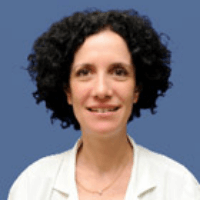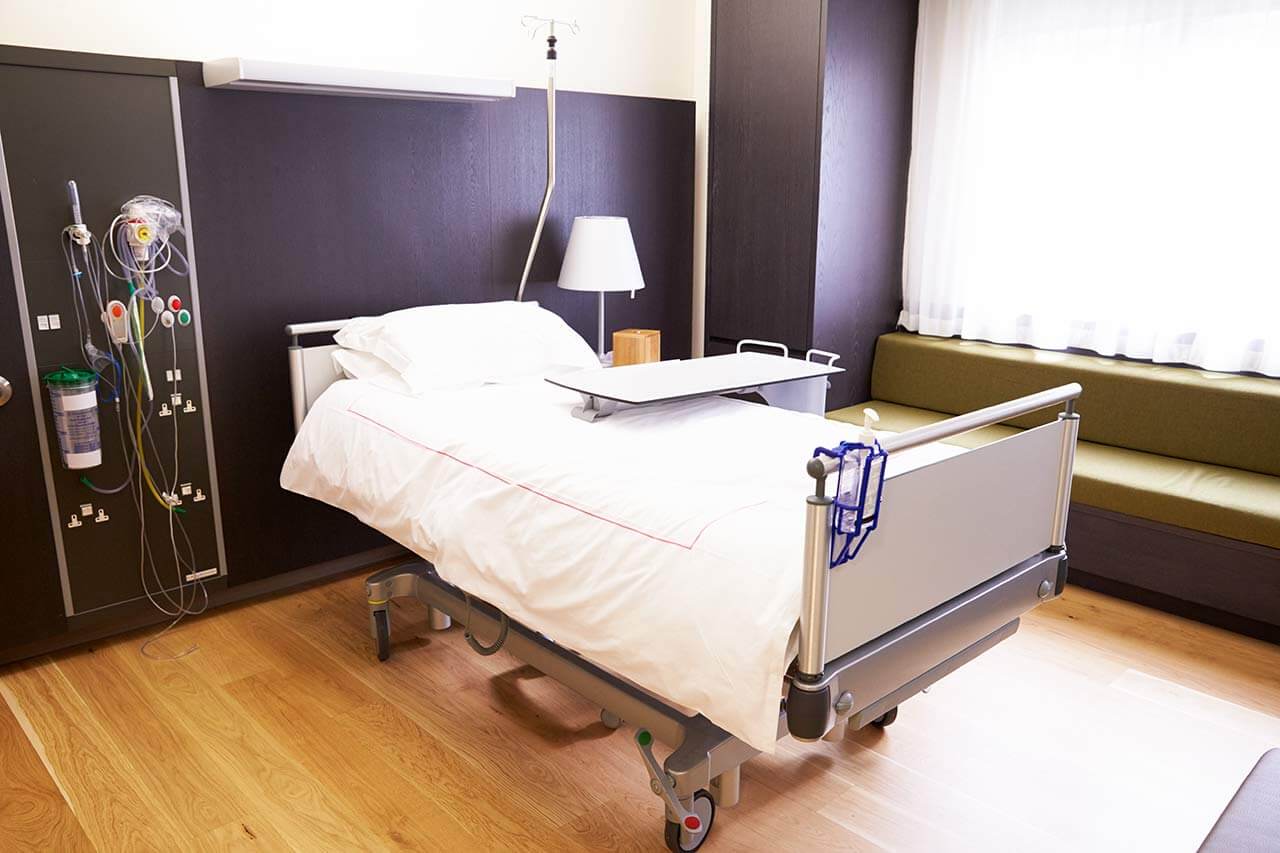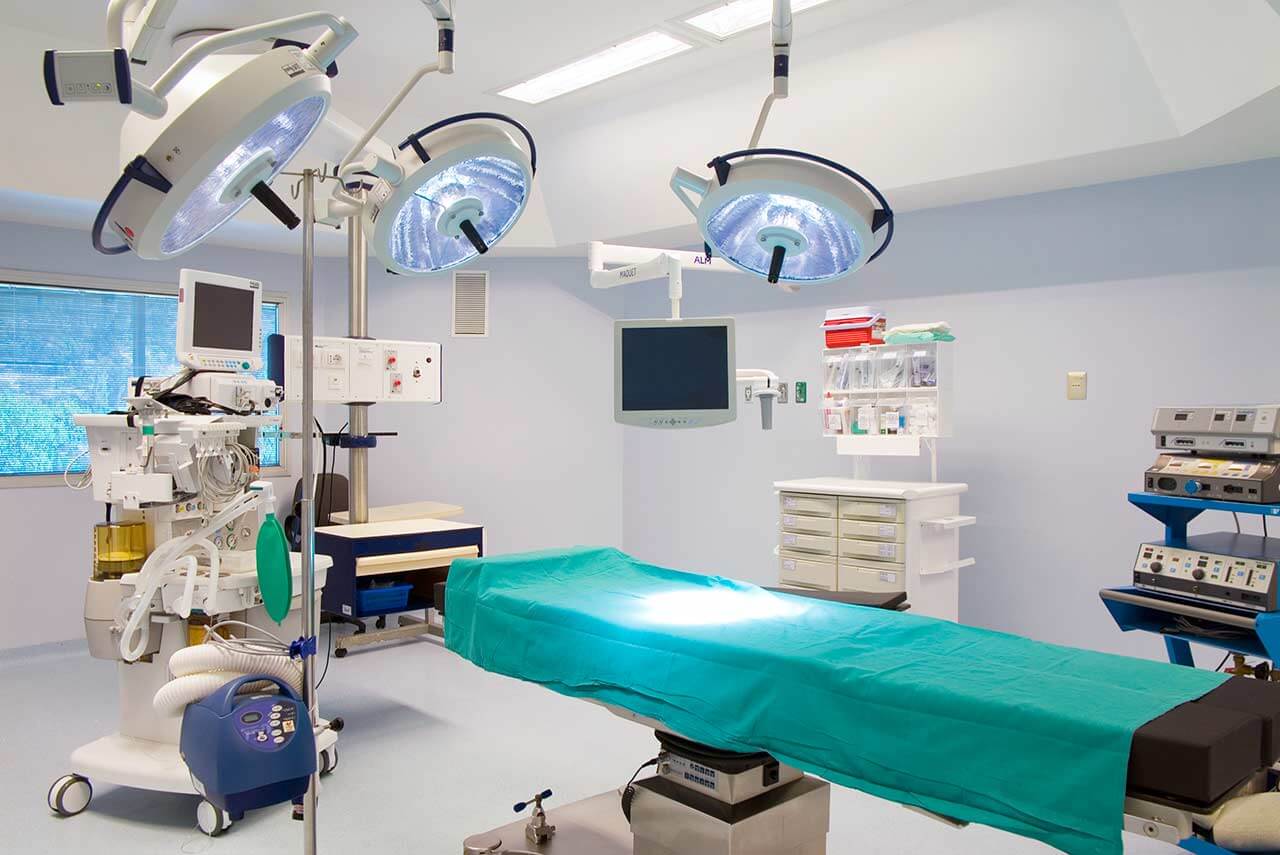
The program includes:
- Initial presentation in the clinic
- clinical history taking
- review of medical records
- physical examination
- laboratory tests:
- complete blood count
- general urine analysis
- biochemical analysis of blood
- inflammation indicators (CRP, ESR)
- indicators blood coagulation
- tumor markers (CEA, CA 15-3,CYFRA 21-1, NSE)
- mammology examination:
- breast ultrasound
- mammography
- MRI of the breast (on indications)
- ultrasound examination: pelvis, abdomen
- preoperative care
- radical mastectomy
- histologically examination of the remote tissues
- testing for ER and PR
- the HER2 status
- Oncotype DX test (on indications, additional cost 4000 €)
- Mammaprint test (on indications, additional cost 3000 €)
- symptomatic treatment
- control examinations
- the cost of essential medicines and materials
- nursing services
- full hospital accommodation
- explanation of future recommendations
Required documents
- Medical records
- MRI/CT scan (not older than 3 months)
- Biopsy results (if available)
Service
You may also book:
 BookingHealth Price from:
BookingHealth Price from:
About the department
The Department of Mammology at the Tel Aviv Sourasky Medical Center offers all the modern options for the diagnostics and treatment of breast diseases. The department has the status of an internationally recognized center in this medical field. The priority is the treatment of breast cancer. To this end, the department applies all modern evidence-based methods in medicine, including hormone therapy, chemotherapy, biological and radiation therapy, as well as surgical methods for removal of a tumor (for example, lumpectomy and mastectomy) and lymph nodes. The preference is always given to organ-preserving operations. The department is headed by Dr. med. Tehila Menes.
To detect breast diseases, the department uses the very latest diagnostic options.
The diagnostic range of the department includes:
- Mammography
- Extensive examination to detect metastasis using ultrasound, MRI, CT and PET-CT
- Breast biopsy for histological examination of the tumor
- Tomosynthesis (a new method of 3D mammography, which allows the doctor to obtain many images of the mammary gland from different angles)
- Contrast-enhanced mammography
- And other diagnostic methods
Once the diagnostics is completed, the doctors develop individual treatment programs taking into account the histological type and size of the tumor, its location, the degree of extension to the surrounding tissues, the state of the lymph nodes, etc. The department is known for its multidisciplinary approach when oncologists, surgeons, radiologists and other specialists conjointly develop comprehensive treatment and rehabilitation programs for each patient. In the cases where surgical treatment is required, the most modern surgical techniques are available here.
At the early stages of the disease, in the case of a small tumor, the doctors mostly perform lumpectomy – sectoral resection, which involves the removal of the tumor and part of the adjacent tissues. With laparoscopic techniques, the department's surgeons carry out breast reconstruction without implants. At the advanced stages, when the patient mostly requires total removal of the affected breast, reconstructive surgery becomes the best solution. In the field of reconstructive surgery, all modern microsurgical options are available, including the use of implants, tissue expanders, skin flaps, etc.
In the case of contraindications for surgical treatment, radiation therapy becomes an option of choice, if necessary, in combination with other therapeutic methods.
The therapeutic range of the department includes the following options:
- Non-surgical treatment methods
- Hormone therapy
- Chemotherapy
- Biological therapy
- Radiation therapy
- Combinations of different methods and other treatment options for breast diseases
- Surgical treatment methods
- Organ-sparing operations
- Partial and total (radical) mastectomy
- Removal of sentinel lymph nodes, removal of axillary lymph nodes
- Primary / secondary reconstructive interventions, including with the help of implants, skin grafts, etc.
- And other surgical methods and options
- Additional options
- Consultations on issues related to breast diseases
- Consultations on early screening and clinical diagnostics
- Interdisciplinary tumor boards (weekly)
- Supportive therapeutic procedures
- Pain therapy
- Other diagnostic and therapeutic options
Photo of the doctor: (c) Tel Aviv Sourasky Medical Center
About hospital
The Tel Aviv Sourasky Medical Center is the second largest and one of the most advanced healthcare and research facilities in Israel. It began its work in 1961, but it is still popular among the local population and attracts thousands of international patients.
The multidisciplinary medical center covers an area of 150,000 m². It has 60 departments and institutes with 1300 beds. The hospital annually provides its highly professional services to more than 1,5 million patients. In addition, the hospital enjoys prestige among doctors, many of whom want to have an internship and work here.
The medical center employs more than 6,400 people, among them more than 1,100 doctors, 1,760 nurses, 850 medical laboratory assistants, technical and other employees. The medical staff successfully combines clinical and research activities. The hospital annually conducts clinical trials aimed at the the development of new diagnostic and treatment methods.
Structurally, the medical facility is divided into four main hospitals. These include the General Hospital, the Rehabilitation Hospital, the Lis Maternity and Women's Hospital and the Dana-Dwek Children's Hospital.
The medical center is focused on individualized treatment. With adherence to the international standards of service, the specialists take into account the needs of each patient, his age and a specific clinical case. The medical center strives to provide treatment in a friendly and respectful atmosphere, with an empathic attitude to each patient.
Photo: (c) depositphotos
Accommodation in hospital
Patients rooms
The patients of the Tel Aviv Sourasky Medical Center live in comfortable rooms equipped with all necessary amenities. The standard room includes an automatically adjustable bed, a bedside table, a wardrobe for storing clothes. Also, each room has an ensuite bathroom with shower and toilet.
Meals and Menus
The medical center offers three meals a day: breakfast, lunch and dinner. For lunch, the patients have a choice of daily menus. If for some reason you do not eat all foods, you will be offered an individual menu. Please inform the medical staff about your food preferences prior to treatment.





